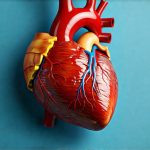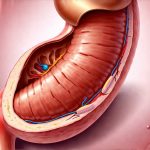Gastroesophageal reflux disease (GERD) is a common condition affecting millions worldwide, characterized by persistent heartburn and acid indigestion. While medication can play a vital role in managing symptoms, significant improvements can often be achieved through conscious lifestyle modifications. These changes aren’t about drastic overhauls but rather thoughtful adjustments to daily habits that minimize triggers and support healthy digestive function. This article explores practical lifestyle strategies designed to help individuals better manage their GERD symptoms and improve overall quality of life.
Understanding the underlying mechanisms contributing to GERD is essential for effective management. The lower esophageal sphincter (LES), a muscular ring at the bottom of the esophagus, normally prevents stomach acid from flowing back up. When this sphincter weakens or relaxes inappropriately, acid reflux occurs, leading to those familiar uncomfortable symptoms. Lifestyle adjustments aim to strengthen LES function, reduce stomach acidity, and promote efficient digestion.
Dietary Adjustments for GERD Management
Diet plays a crucial role in managing GERD. Certain foods are known triggers for many individuals, while others can help soothe the digestive system. Identifying your personal trigger foods is often achieved through careful observation and elimination diets, done with appropriate guidance.
Focusing on whole, unprocessed foods is generally beneficial. A diet rich in fiber supports healthy digestion and can reduce bloating, which contributes to pressure on the stomach. Staying hydrated throughout the day is also important as water aids in digestion and helps neutralize stomach acid.
Optimizing Daily Habits
Small daily routines significantly impact GERD symptoms. Many people find that elevating the head of their bed by 6-8 inches while sleeping reduces nighttime reflux. This utilizes gravity to help keep stomach acid where it belongs. Avoid eating within 2-3 hours of bedtime, allowing sufficient time for digestion before lying down.
Meal Timing and Portion Control
Eating smaller, more frequent meals throughout the day can reduce pressure on the LES compared to large meals. Overeating stretches the stomach and increases the likelihood of acid reflux. Pay attention to feelings of fullness and avoid overindulging, even with seemingly harmless foods.
Mindful eating – savoring each bite and chewing thoroughly – also aids digestion and reduces the risk of heartburn. Rushing through meals can lead to incomplete digestion and increased gas production, exacerbating GERD symptoms.
Weight Management & Exercise
Excess weight, particularly around the abdomen, increases pressure on the stomach, forcing acid up into the esophagus. Maintaining a healthy weight through regular exercise and balanced nutrition is therefore beneficial for managing GERD.
Exercise itself can aid in digestion and reduce stress, both of which contribute to improved GERD symptoms. However, avoid strenuous activity immediately after eating, as this can trigger reflux. Low-impact exercises like walking, swimming, or yoga are generally well-tolerated.
Identifying & Avoiding Trigger Foods
While individual triggers vary widely, some foods commonly exacerbate GERD symptoms. These include fatty or fried foods, chocolate, caffeine, carbonated beverages, citrus fruits and juices, tomatoes and tomato-based products, mint, garlic, onions, and spicy foods.
Keeping a food diary can help identify personal trigger foods. Track what you eat, when you eat it, and any resulting symptoms. This allows for informed dietary modifications and reduces unnecessary discomfort. It’s important to note that eliminating entire food groups isn’t usually necessary; rather, moderation and mindful consumption are key.
It is essential to remember this information is not a substitute for professional medical advice. If you suspect you have GERD or your symptoms are severe, consult with a healthcare provider for personalized diagnosis and treatment recommendations. Lifestyle changes can be incredibly effective in managing GERD, but they should ideally be implemented alongside appropriate medical care. Consistent adherence to these strategies, combined with regular check-ups, will contribute significantly to improved digestive health and overall well-being.


















